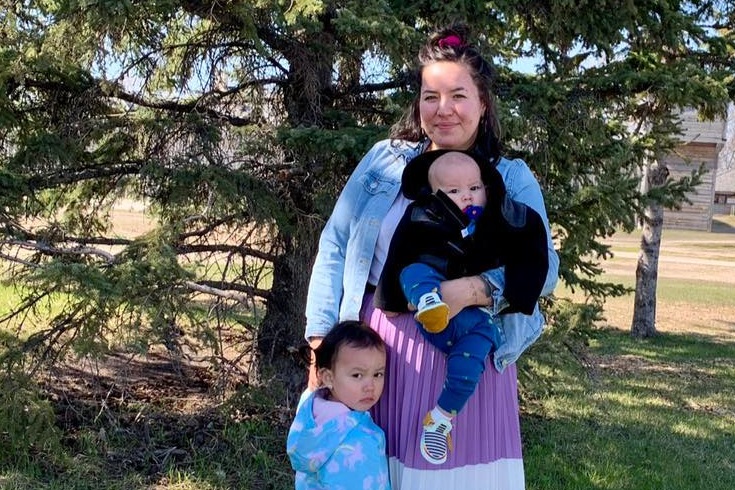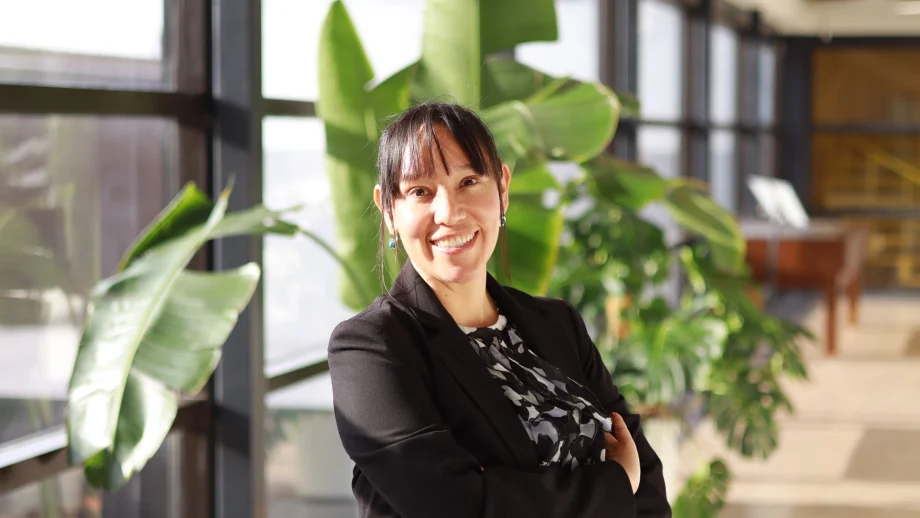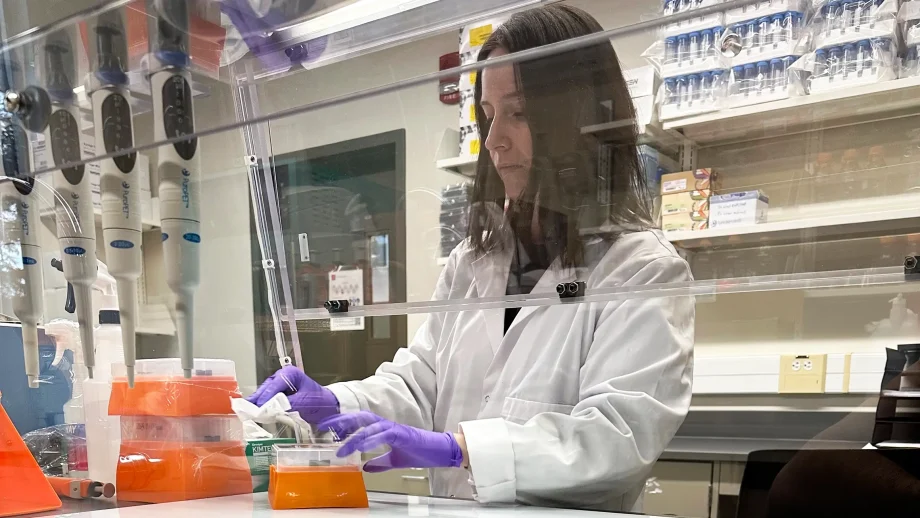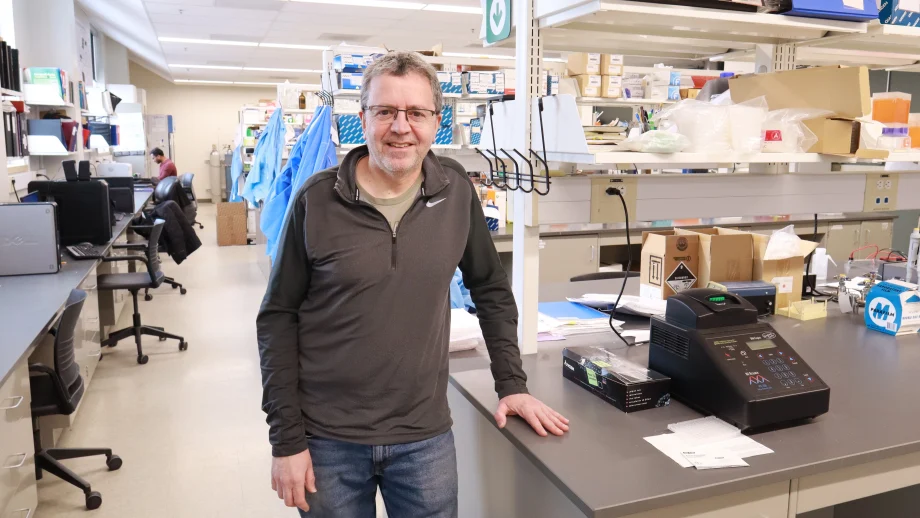
Sarah DeLaronde balances parenthood and academics while gaining new understanding of Indigenous maternal health in Manitoba as part of the Kishaadigeh research team. Photo supplied.
This summer, Sarah DeLaronde is working with Dr. Jaime Cidro on Kishaadigeh, an NEIHR-funded, Indigenous-led health research project developed by and with Indigenous communities and organizations to empower health research initiatives that reflect their priorities.
As a new graduate student, being able to see this process from the other side has been extremely valuable for me.
Sarah DeLaronde
DeLaronde, who is also known as Eagle Cloud Woman, graduated with a Bachelor of Arts in Anthropology from The University of Winnipeg in 2018. She begins her Masters in Development Practice in September 2020.
Working on this project has given DeLaronde a new appreciation for the work that goes into academic research.
“I didn’t realize the amount of work that went into writing scholarly articles, as well as all the people involved in not only writing, but editing and reviewing as well,” she said. “As a new graduate student, being able to see this process from the other side has been extremely valuable for me.”
Community partnerships central to project
DeLaronde is spending her summer connecting with community partners as they develop their research priorities, such as a scoping review on Indigenous maternal health in Manitoba using parameters set by the First Nations Health and Social Secretariat.
“We will be looking for what hasn’t been written about the subject yet, and then attempting to fill the gaps with our project outcomes,” she said. “We are trying to align the written work with the hands-on experiences of communities.”
As a mother of two, she has had to balance her research with the needs of her family.
“Any kind of work and trying to balance family life as a single parent is challenging,” she said. “Add trying to stay calm and safe during a pandemic, it has definitely been stressful. Yet I consider this time with my children and relatives a blessing.”
Indigenous spirituality, birth sovereignty, and life cycles
Her research interests include all aspects of Indigenous spirituality, birth sovereignty, and life cycles. Her dream is to one day work as a doula or midwife so she is thankful for the opportunities Cidro has given her to participate in research related to these goals.
“Dr. Cidro has given me opportunities to research the importance of culturally-competent birth workers, the importance of ceremony in research, as well how we can have better outcomes in Indigenous maternal-child health,” she said.
For DeLaronde, becoming a mother reinforced the importance of carrying on the ceremonies and teachings of her people. She is thankful to be able to take part in a project that supports Indigenous communities and organizations to drive their own health research and data needs.
“After I had my daughter, the whole experience really drove home the importance of passing on ceremonies and teachings that have been in my blood since time immemorial,” she said. “The first – and in my opinion the most important – ceremony, is pregnancy and birth.”
Hosted by UWinnipeg’s Faculty of Graduate Studies, the Indigenous Summer Scholars Program strengthens the pathways for Indigenous students to move into advanced study and, ultimately, into leadership roles in various sectors. Scholars are paired with faculty members, many of whom are involved in Indigenous research.
The summer scholars receive training stipends to participate in the program, which consists of a series of workshops and discussions exploring a variety of research skills, in addition to the opportunity to practice and hone those skills in a specific research project.




